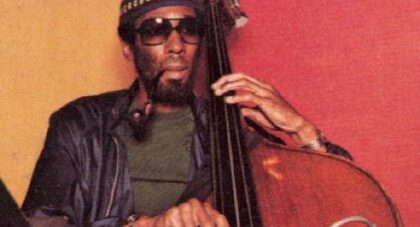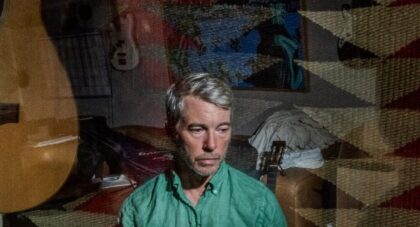New Jersey's own Garcia Peoples open Nightcap at Wits' End with an arch, vaguely evil-sounding riff that signals what's to come: a set of songs that would feel equally at home soundtracking a backyard hang, a rousing game of D&D, or a solitary night at home considering the universe. Founding members Danny Arakaki and Tom Malach join us to discuss the band's progward drift and open source creative flow . . .
Only the good shit. Aquarium Drunkard is powered by its patrons. Keep the servers humming and help us continue doing it by pledging your support.
To continue reading, become a member or log in.


